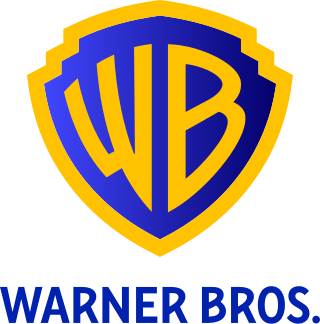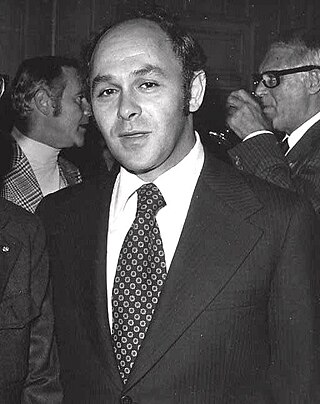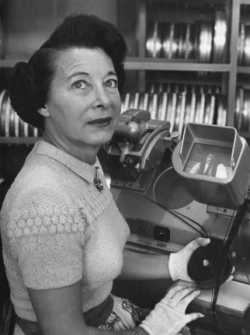The Fox Film Corporation was an American independent film production studio formed by William Fox (1879–1952) in 1915, by combining his earlier Greater New York Film Rental Company and Box Office Attraction Company.

Warner Bros. Entertainment Inc. is an American film and entertainment studio headquartered at the Warner Bros. Studios complex in Burbank, California, and a subsidiary of Warner Bros. Discovery (WBD). Founded in 1923 by four brothers, Harry, Albert, Sam, and Jack Warner, the company established itself as a leader in the American film industry before diversifying into animation, television, and video games, and is one of the "Big Five" major American film studios, as well as a member of the Motion Picture Association (MPA).

Metro-Goldwyn-Mayer Studios, Inc., is an American media company specializing in film and television production and distribution. Founded on April 17, 1924, and based in Beverly Hills, California, it is owned by the Amazon MGM Studios subsidiary of Amazon.

20th Century Studios, Inc. is an American film studio owned by the Walt Disney Studios, a division of Disney Entertainment, in turn a division of The Walt Disney Company. It is headquartered at the Fox Studio Lot in the Century City area of Los Angeles, leased from Fox Corporation. Walt Disney Studios Motion Pictures distributes and markets the films produced by 20th Century Studios in theatrical markets.

Universal City Studios LLC, doing business as Universal Pictures is an American film production and distribution company, a division of Universal Studios, which is owned by NBCUniversal, a division of Comcast.

United Artists Corporation (UA) was an American production and distribution company founded in 1919 by D.W. Griffith, Charlie Chaplin, Mary Pickford and Douglas Fairbanks as a venture premised on allowing actors to control their own interests rather than being dependent upon commercial studios.

Darryl Francis Zanuck was an American film producer and studio executive; he earlier contributed stories for films starting in the silent era. He played a major part in the Hollywood studio system as one of its longest survivors. He produced three films that won the Academy Award for Best Picture during his tenure at 20th Century Fox.

Major film studios are production and distribution companies that release a substantial number of films annually and consistently command the significant share of box office revenue in a given market. In the American and international markets, the major film studios, often known simply as the majors or the Big Five studios, are commonly regarded as the five diversified media conglomerates whose various film production and distribution subsidiaries collectively command approximately 80 to 85% of U.S. box office revenue. The term may also be applied more specifically to the primary motion picture business subsidiary of each respective conglomerate.

Frank Yablans was an American studio executive, film producer, and screenwriter. Yablans served as an executive at Paramount Pictures, including President of the studio, in the 1960s and 1970s.

Richard Darryl Zanuck was an American film producer. His 1989 film Driving Miss Daisy won the Academy Award for Best Picture. Zanuck was also instrumental in launching the career of director Steven Spielberg, who described Zanuck as a "director's producer" and "one of the most honorable and loyal men of our profession."

Joseph Michael Schenck was a Russian-born American film studio executive.

William B. Goetz was an American film producer and studio executive. Goetz was one of the founders of Twentieth Century Pictures, and later served as vice president of 20th Century Fox after the studio's merger with the Fox Film Company. At Universal-International, he served as the head of production from 1946 until 1953.

Spyros Panagiotis Skouras was a Greek-American motion picture pioneer and film executive who was the president of 20th Century-Fox from 1942 to 1962. He resigned June 27, 1962, but was chairman of the company for several more years. He also had numerous ships, owning Prudential Lines.
MGM Home Entertainment LLC is the home video division arm of the American media company Metro-Goldwyn-Mayer (MGM). It is owned by the Amazon MGM Studios subsidiary of Amazon.

Associated Artists Productions, Inc. (a.a.p.) later known as United Artists Associated was an American distributor of theatrical feature films and short subjects for television. Associated Artists Productions was the copyright owner of the Popeye the Sailor shorts by Paramount Pictures, and the pre-1950 Warner Bros. Pictures film library, notably the pre-August 1948 color Looney Tunes and Merrie Melodies series of animated shorts, and the black-and-white Merrie Melodies shorts from Hugh Harman and Rudolf Ising, excluding Lady, Play Your Mandolin!.
Nicholas Nayfack was an American movie producer whose notable works include Forbidden Planet and The Invisible Boy. He was the nephew of MGM studio chief Nicholas Schenck and United Artists studio boss Joseph M. Schenck.

Barbara "Bobby" McLean was an American film editor with 62 film credits.
Charles R. Rogers, was an American film producer whose career spanned both the silent and sound film eras. Rogers began his career on the 1924 silent film, A Cafe in Cairo, produced by the short-lived Hunt Stromberg Productions. After Stromberg ceased productions in 1925, Rogers would found his own independent company, Charles R. Rogers Productions. He would also produce for major studios such as RKO Radio Pictures, Universal, and United Artists. The pinnacle of his career would be from 1936 to 1938 when he was chosen as the vice-president in charge of production for Universal Pictures. He died as the result of injuries sustained in a car accident in 1957.
Brown Holmes was an American screenwriter who worked for several major Hollywood studios in the 1930s and 1940s.
The Zanuck Company is an American motion picture production company. It is responsible for such blockbusters as Jaws, The Sting, Cocoon, Driving Miss Daisy, Charlie and the Chocolate Factory and Alice in Wonderland.














